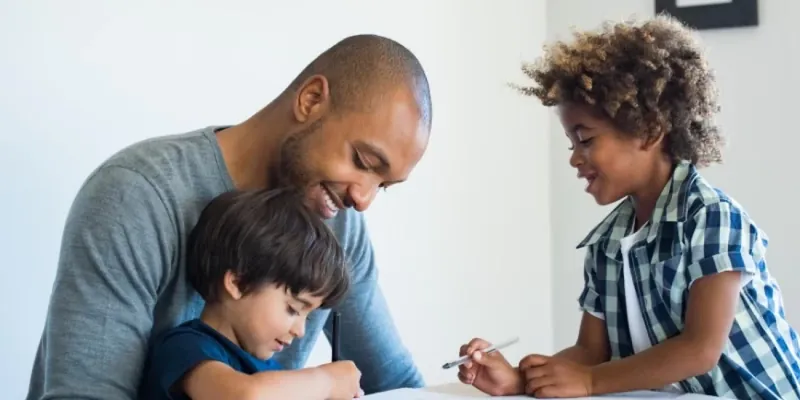Browse by category

10 Tips to Improve Your Relationship With Your Children | Parenting During COVID-19
With the increase in uncertainty, changes in routines, and other impacts to our family life due to COVID-19, everyday living can be a struggle for families.
Here are 10 things you can do to help your relationship with your children thrive, not just survive in these challenging times:
1. Take care of yourself: In order to best care for your children, it is essential you take care of yourself. Remember you are not alone in navigating these challenging times and connecting with others can give you invaluable empathy, energy, and renewal.
2. Validate their feelings: It is okay if children are sad or angry. Avoid trying to cheer them up, and be open to talking about those challenging feelings.
An example statement is: “Yes, it does stink to not be able to see your friends as frequently as you used to.”
3. Verbalize your feelings: Share how you are feeling in a non-judgmental way. It’s okay to feel overwhelmed, sad, or exhausted. Share your feelings without blaming children or others.
An example statement is: “I really miss my friends, and feel sad I can’t go out to dinner with them.”
4. Normalize discomfort & promote acceptance: It is normal to experience discomfort with uncertainty, and it is important to communicate to children that they are not alone or abnormal in this. Help children learn that we can practice acceptance regarding that which we do not know and do not have control over.
An example statement is: “It is scary to not know what our school schedule will be in the fall, but we have no way of knowing that information right now, and that’s okay.”
5. Share what you do know: Share information you do know with children in a developmentally appropriate manner.
Example statements are: “School will not look the same as it usually does at the start of the year;” and “People are still getting sick, so it’s important that we wear our masks.”
6. Provide specific praise: Be specific with praise you give to children to maximize reinforcement.
An example statement is: “I noticed you kept your mask on even though your friends took theirs off, and that made me really proud of you.”
7. Establish routines: Make a daily schedule together with your children. For example:
Set times for waking, sleeping, and eating (sleep & hunger can impact mood).
Designate times for play and work.
Be sure to also create opportunities for choice and flexibility throughout the day, such as with a “free choice” time or allowing your children to choose from a menu of activities for play time.
8. Use a collaborative problem-solving approach:
Set a family meeting to discuss what is going well and what is not.
Collaboratively come up with a plan to address what is not going well,and gain agreement from all family members.
Follow through with agreements, promises, and consequences that you verbalize. If you are not certain you can deliver, it is better to not make the agreement.
9. Make room for positive experiences: Even in hard times, there are positives that come out of the situation. It’s helpful to mindfully note and allow your kids to acknowledge the silver lining.
An example statement is: “It’s really hard that we haven’t been able to spend time with your grandparents like we usually do. However, I love that you’ve been calling them so often, and wonder if you’ve been able to grow even closer.”
10. Model positive behaviors: Children learn what they observe. Model behaviors and communication styles you want to see more of.
For example: Rather than telling your child to wear a mask, model this behavior by wearing one yourself.